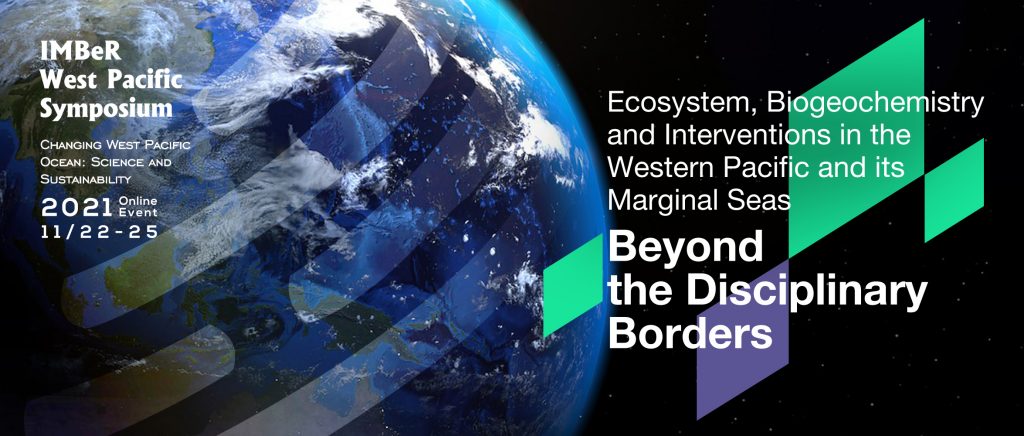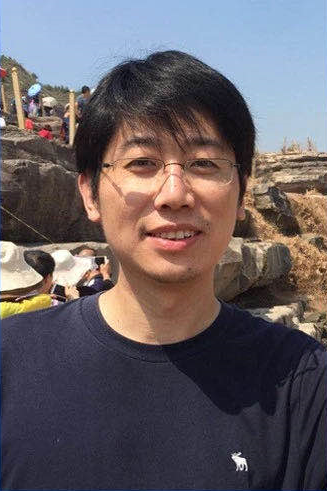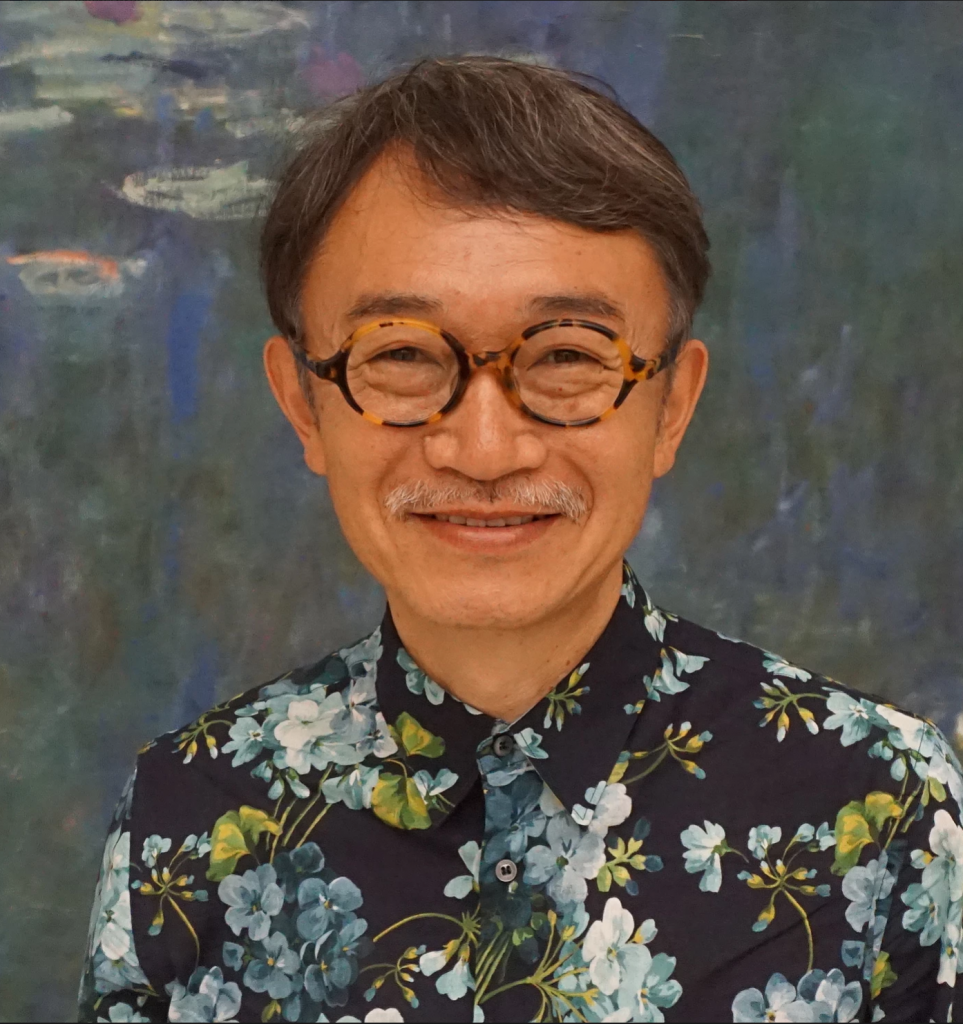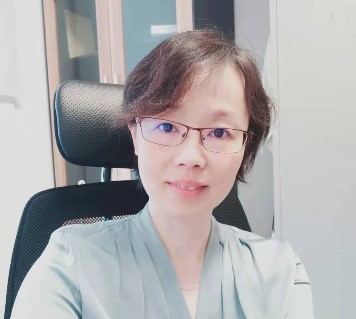Session 8: Ecosystem, Biogeochemistry, and Interventions in the Western Pacific and its Marginal Seas: Beyond the Disciplinary Borders

About this session
Marine ecosystems are under serious pressure of anthropogenic perturbations such as global warming, ocean acidification, coastal development, IUU fishing. The ecosystem changes are inducing the degradation of marine ecosystem services, which are the foundation of human society, and have affected economic activities and the welfare of coastal residents. Science-based policymaking is necessary for the sustainable use of marine ecosystem services under the on-going pressures. However, our understand on the complex and diverse ecosystem structure and dynamics of the western Pacific Ocean, the biogeochemical cycle, and their responses to climate change is limited. Preparing the best scientific knowledge to decision makers is an emergent request to scientists from society.
This session invites studies of marine ecosystem, biogeochemistry, their response to natural and anthropogenic climate perturbations and adaptation-focused interventions in the Western North Pacific and its marginal seas, especially those with interdisciplinary approach. Studies with new technique such as BGC-Argo, molecular biology, earth system model/regional ecosystem and BGC model, are welcome.
Keynote Speaker

Jie Yin, East China Normal University, China
Keynote title: Flood Modeling and Emergency Response
Dr. Jie Yin is a professor of School of Geographic Sciences, East China Normal University. He received his PH.D in physical geography from East China Normal University in 2011. He worked at Department of Civil and Environmental Engineering, Princeton University as a visiting post-doctor during 2014-2016. In 2016, he joined East China Normal University with the support of the “Zijiang scholar program”.
Dr. Yin’s research interests focus on the flood modeling and risk analysis. He has contributed to the development of raster-based high resolution flood inundation models such as FloodMap and ECNU Flood-Urban, which are being widely used in pluvial, fluvial and coastal flood modeling in different countries such as UK, US and China. He and his collaborators also advanced the understanding of climate change impacts on the evolving flood risks in the coastal areas. Another focus of his research is on the urban flood emergency responses by combining flood nowcasting with real-time accessibility mapping.
Dr. Yin has published more than 50 papers in peer-reviewed journals, including Nature Sustainability, Earth’s Future, Water Resources Research, and Journal of Geophysical Research. He was honored with the Excellent Doctoral Dissertation in Shanghai, the Youth Science Award of ECNU and the Outstanding Achievement Award of Philosophy and Social Sciences of Shanghai. He is a member of IGU Hazard and Risk Commission, WWRP China National Committee, and Journal of Flood Risk Management editorial board. In recent years, his research has been funded by the National Key Research and Development Program of China, the National Natural Science Foundation of China, and the Humanities and Social Science Project of Education Ministry of China.
Co-moderators

Hiroaki Saito, The University of Tokyo, Japan
Prof. Saito is a biological oceanographer studying marine ecosystem dynamics and biogeochemical cycles and their relationship with human society. His main interest is the mechanism of marine ecosystem dynamics, especially response to natural and anthropogenic events, such as seasonal cycle of subarctic ecosystem, plankton and fish stock fluctuation responding to decadal ocean oscillation, impact of iron dust event to food-web components and biological pump in the HNLC regions. He was an SSC member at the start of IMBER (2004-08), and has been led various IMBeR related transdisciplinary projects. He is also active in international projects and organizations such as North Pacific Marine Science Organization (PICES), UNESCO/IOC, SCOPUS(CLIVAR). He is now PI of IMBeR endorsed project CREPSUM to establish an international science and educational network for the Southeast Asia marine ecosystem and contribute to UN Decade of Ocean Sciences.

Ying Wu, East China Normal University, China
Ying Wu,Professor of SKLEC, ECNU. She is the SSC member of IMBeR since 2016. Her research is primarily focused on composition and biogeochemistry of organic matter from the source to the sink, using isotopes and biomarkers to trace sources, flux and cycle and transformation in the natural environment, application of the organic geochemistry tool to ecological studies. Take the responsibility to set up the organic geochemical analysis platform in SKLEC and take the leadership in marine organic geochemical group. She has undertaken seven National Natural Science Funds, one international cooperation project of the Ministry of Science and Technology, and one 973 project as a sub-project PI. She was honored as MoE New Century Excellent Talents in 2005 and the Humboldt Experienced Fellow in 2011.
- Deadline for abstracts: Extended to 10 October
- An example abstract is provided here
This session contributes to the following IMBeR Grand and Innovation Challenges
Grand Challenges

Grand Challenge I
Understanding and quantifying the state and variability of marine ecosystems

Grand Challenge II
Improving scenarios, predictions and projections of future ocean-human systems at multiple scales

Grand Challenge III
Improving and achieving sustainable ocean governance
Innovation Challenges
Innovation Challenge 3
To Advance Understanding of Ecological Feedback in the Earth System
Innovation Challenge 4
To Advance and Improve the Use of Social Science Data for Ocean Management, Decision Making and Policy Development
Innovation Challenge 5
Interventions to change the course of climate impacts
Innovation Challenge 6
Sustainable management of Blue Carbon ecosystems